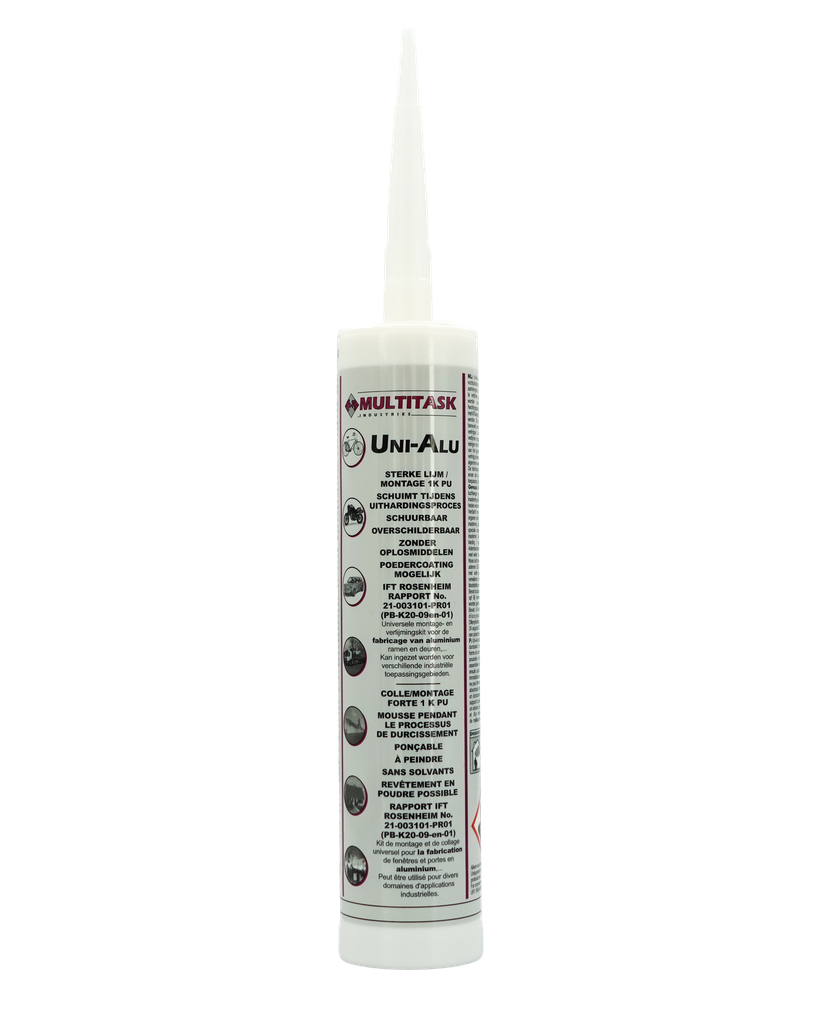UNI-ALU
- PU-based mounting adhesive
- Miter adhesive
- Tough-elastic adhesive joint
- Joint filler
- Foams during curing
- VOC emission class A+
| Textual description |
UNI-ALU – Strong 1K PU Adhesive & Assembly Sealant UNI-ALU is a powerful one-component polyurethane adhesive, ideal for structural bonding and assembly. The product creates a strong, durable bond and is suitable for a wide range of materials. Features:
With UNI-ALU, you achieve a professional, strong, and durable assembly – perfect for installers and maintenance technicians who need reliable bonding performance.
|
| Use |
For bonding corner joints in aluminum windows and doors. UNI-ALU is an ideal mounting and adhesive sealant for the manufacturing of aluminum windows and doors. Suitable for various industrial applications. |
| Instructions for use |
Preparation
Bonding
Bonding Metals
General Information
Cleaning
Storage
Important Notes
|
| Basis |
1K moisture-curing polyurethane |
| Color | White |
| Viscosity |
Average viscosity - pasty |
| Density | 1520 kg/m³ |
| Skin formation |
Approximately 7 minutes (dosing quantity 500 µm-PE/PVC) under dry conditions |
| Skin formation |
Approximately 4 minutes (dosing quantity 500 µm-PE/PVC) under wet conditions |
| Curing time (23°C / 50% RH) | 2-3mm/24u |
| Adhesion |
Approx. 20 minutes (depending on the application at 20°C) |
| Dosage amount |
Approximately 150-200 g/m² (depending on the substrate) |
| Processing temperature | +7°C to +30°C |
| Tensile strength |
7.3 kN at +80°C after 15 hours |
| Andere info |
IFT Rosenheim rapport No. 21-003101-PR01 (PB-K20-09EN-01) |
